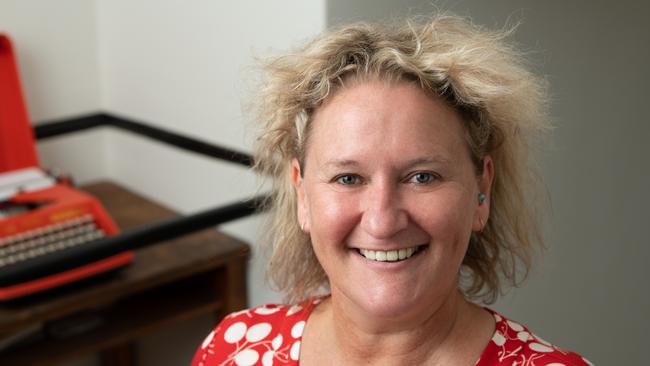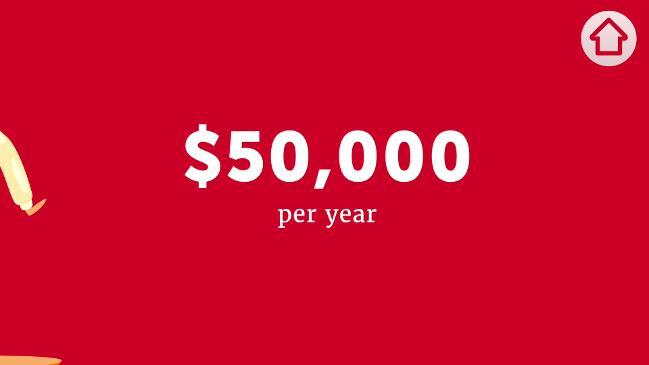Warning over rise in ‘finfluencers’ spruiking property advice
Australia’s housing boom has sparked a “flood” of social media influencers and spruikers portraying themselves as qualified property experts to make a quick buck, a peak body has warned.

Property
Don't miss out on the headlines from Property. Followed categories will be added to My News.
Australia’s property investment professionals peak body has issued a warning over the rise in social media influencers and spruikers portraying themselves as qualified experts in the sector.
Property Investment Professionals of Australia chair Nicola McDougall said market booms “always see an influx of new entrants into the property investment advice space – many of whom are simply chasing a quick buck given there is no national regulation in our sector”.
She said anyone providing property investment advice needed to prove that they had the necessary licences and approvals and have “done what’s necessary to be able to provide tailored independent property investment advice to that particular client”.
“Just because someone has a strong media profile, whether they’ve got hundreds of thousands of followers, doesn’t mean they necessarily know what they’re talking about in the property investment advice space,” Ms McDougall said.
MORE: Husband’s surprise $2.1m home purchase backfires
‘Ya dreaming mate’: Brisbane car space for rent at sharehouse price

“So it’s vital for any consumer if they’re considering following somebody or acting on some advice or information that they’ve seen online, that they need to do their research and make sure that the person that is providing that information, or seemingly giving them advice, is actually qualified to do so.”
“And certainly in the social media space when we think about influencers, often they are promoting particular things because they’re being paid to do so – for whatever reason, that’s obviously how they make their money and what not.”
The Australian Securities and Investments Commission last year issued a warning to social media influencers outlining rules for discussing financial products and services online after its own survey uncovered concerns over the impact they had on young people.
The ASIC young people and money survey had found that 33 per cent of 18-21-year-olds followed at least one financial influencer (or finfluencer) on social media, and that a further 64 per cent reported changing at least one of their financial behaviours as a result of following a finfluencer.
The ASIC survey also found that 22 per cent of respondents “experienced a situation where they felt ripped off, taken advantage of financially or didn’t understand what something would cost them until it was too late”.
Ms McDougall said “the very best operators in the property investment advice space are independent, they provide tailored and professional advice to that particular client. There’s no one size fits all approach, which is obviously the opposite of what’s generally being spruiked online”.
She said given property investment advice was not regulated, there was “always a cohort of people without the skills, licensing, or experience who pretend to offer ‘advice’ when they generally have no idea what they are taking about or are spruikers”.

“The issue is not better or worse than it always has been – without regulation of our sector – but there has been an increase in so-called buyers’ advocates who are not licensed buyers’ agents under real estate licencing laws and have not completed the necessary training to provide independent property investment advice.”
She said “some complete a tick-and-flick course and automatically start calling themselves ‘buyers’ advocates’ when they may have never even bought a property before, let alone understand the intricacies of tailored and independent property investment advice.”
MORE: Block of Brisbane units snapped up $1m under replacement cost
Greater Brisbane: 600 new homes to be built on 42-hectare site

Ms McDougall said PIPA members included professionals across various real estate, mortgage broking, conveyancing and accounting industries who voluntarily adhered to a Code of Conduct and obtained professional standards of accreditation through education.
“Consumers should always check that someone calling themselves a buyers’ advocate or buyers’ agent has the required qualifications, licensing, and experience to do so.”
PIPA has a “find a member” service on its website where investors can check if their adviser is a PIPA member or a QPIA.
Ms McDougall said PIPA had instructed people falsely claiming to be members or QPIAs to “remove these references immediately because it is an offence under Australian Consumer Law to make false and misleading claims about your services such as misrepresenting yourself as a member of an industry association when you are not.”
She said PIPA also took any member complaints very seriously. “While they are not common, PIPA has terminated memberships in the past for serious breaches of our Code of Conduct, which are listed on the PIPA website.”


